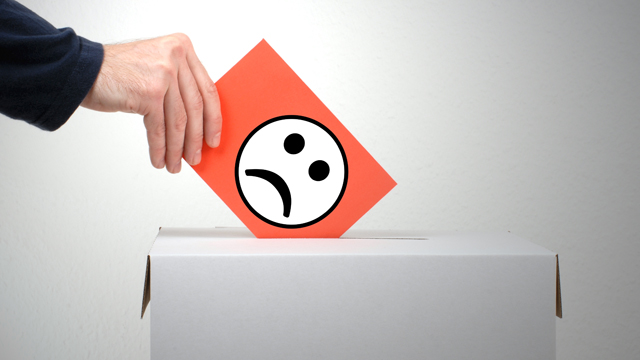
When do we complain? Think about it. We usually complain when we feel a lack of appreciation, when we are coming from a place of judgment, or when we’re unhappy. We complain when we’re not satisfied. We want the world to know that we don’t like what’s going on.
Take a moment to make a list of your top 5 most frequent complaints.
How many of those complaints are about things you have the power to change, but don’t want to make the effort?
How many of those complaints are about people whom the universe has sent you to show you something that you can change about yourself?
How many of those complaints are simply a result of seeing the glass half empty?
Kabbalah explains that complaining is a symptom of a more serious condition: not having a desire to do the necessary work required to make change. The truth is, we complain when we want something for free, when we think we deserve something, when we’re not happy with what we already have.
One of the first concepts we introduce in our beginner Kabbalah classes and books is the “Thought of Creation”. In short, it explains that the reason humanity came to (and lifetime after lifetime, returns to) planet earth is to earn the Light. To be the cause of our reality. To be a partner in creation.
In other words, complaining is essentially an indication that we’re not fulfilling the purpose for which we were created. Because in the Endless World, and against the Creator’s will, we established that if we want something in this physical reality, we have to put effort toward it. That was our request, not the Creator’s.
The portion of Devarim, which is the first portion in the fifth and final book of Moses, is basically a monologue, delivered by Moses himself, detailing the history of the Israelites’ time in the desert. There’s no new news; nothing we haven’t heard before. But Moses is very careful to remind them of all of the complaining the Israelites did (and they made sure to complain at every opportunity).
This period of time we’re in currently – the “Days of Narrowness” (July 15-August 5 in the year 2014) – is already so negative, why do we need to make it worse by reading about more negativity? Why do we want to read about complaining?
When faced with a challenge, the easiest response is to complain. This week of Devarim offers us a vaccine against this easy response. Remember, if you don’t work for something, the fulfillment you get from it can never stay. If you want something, whether physical or spiritual, you have to take responsibility in order to co-create it.
And why the repetition? It is to give us another opportunity to yet again take responsibility and earn the blessings in our lives. The entire book of Devarim, which will lead us into the new kabbalistic year, provides us with the energy to go back and reclaim any missed opportunities.

